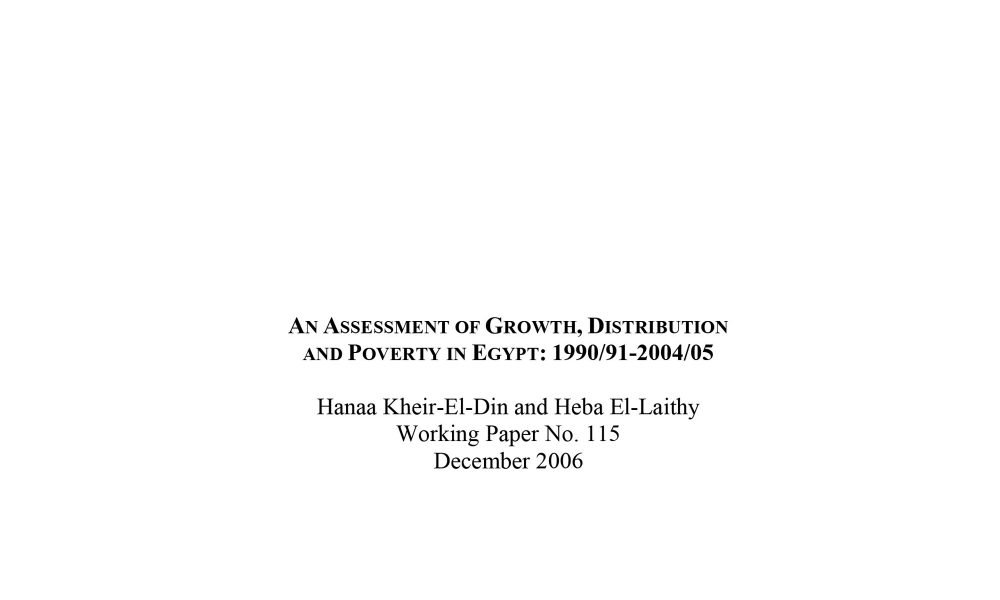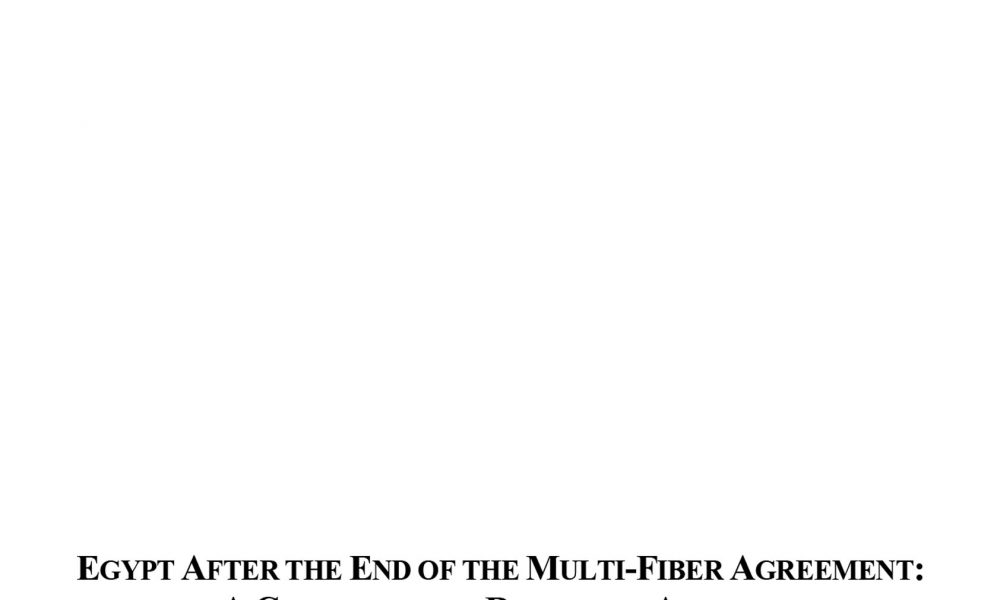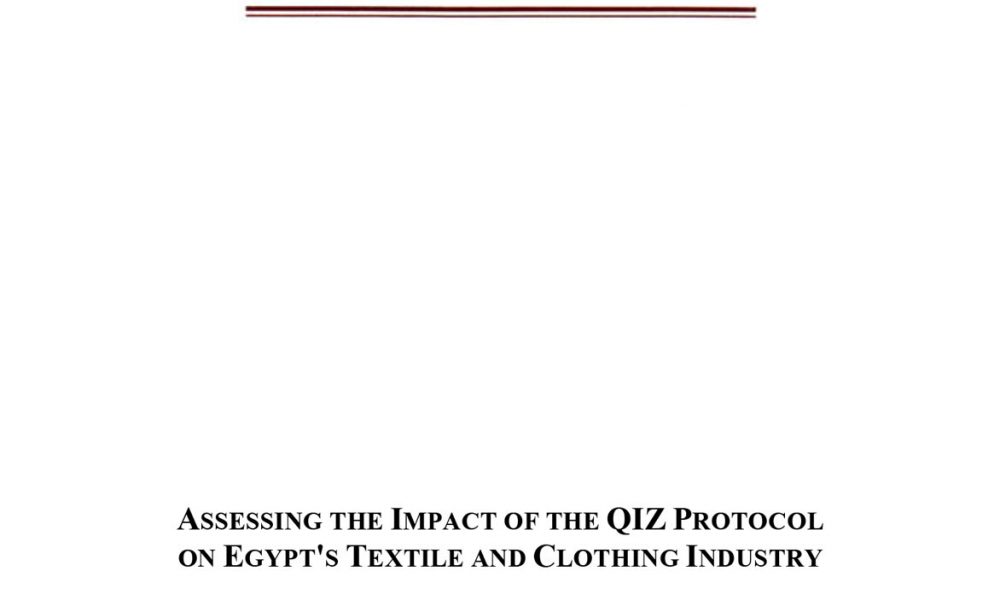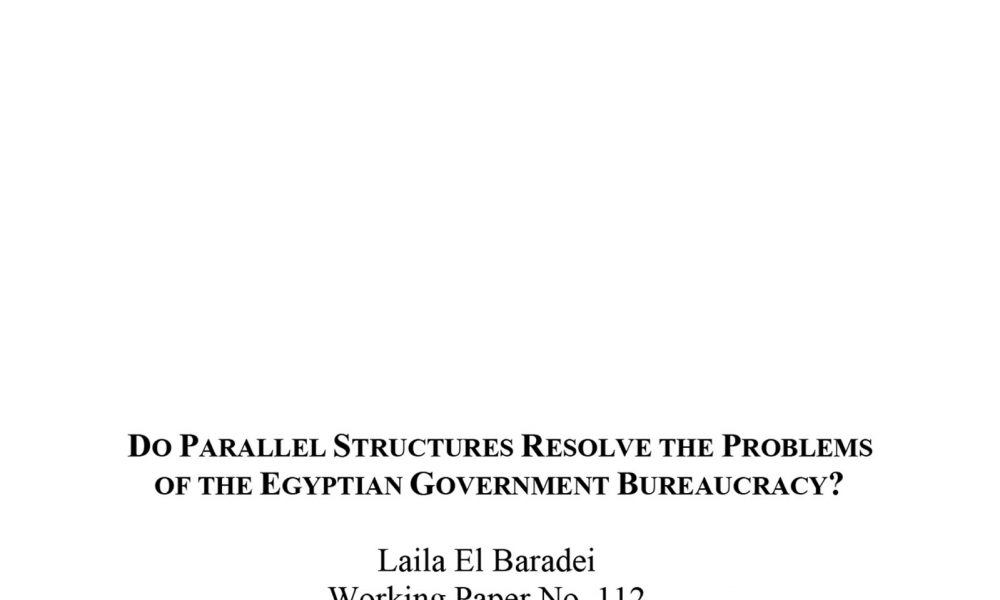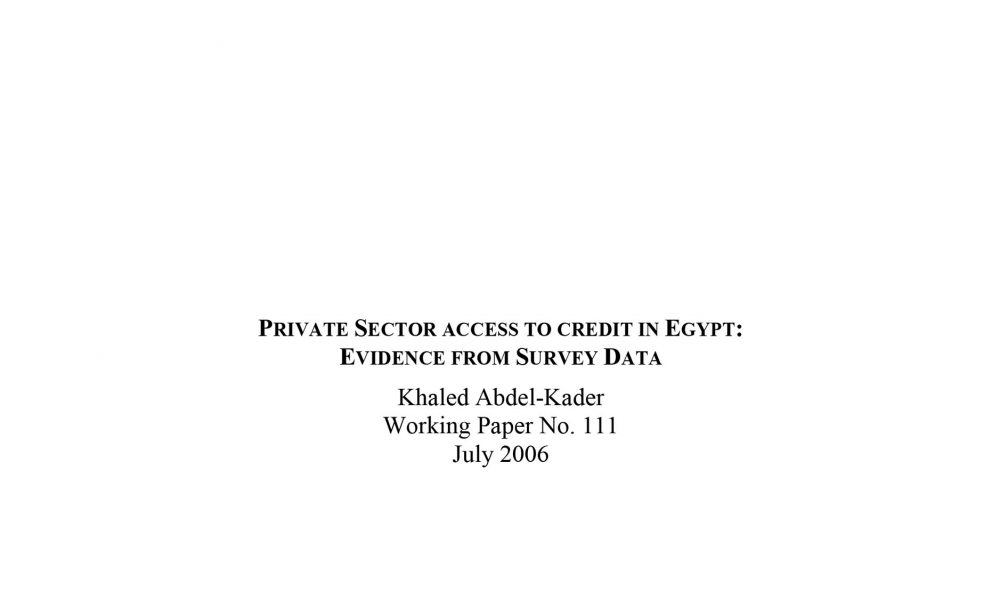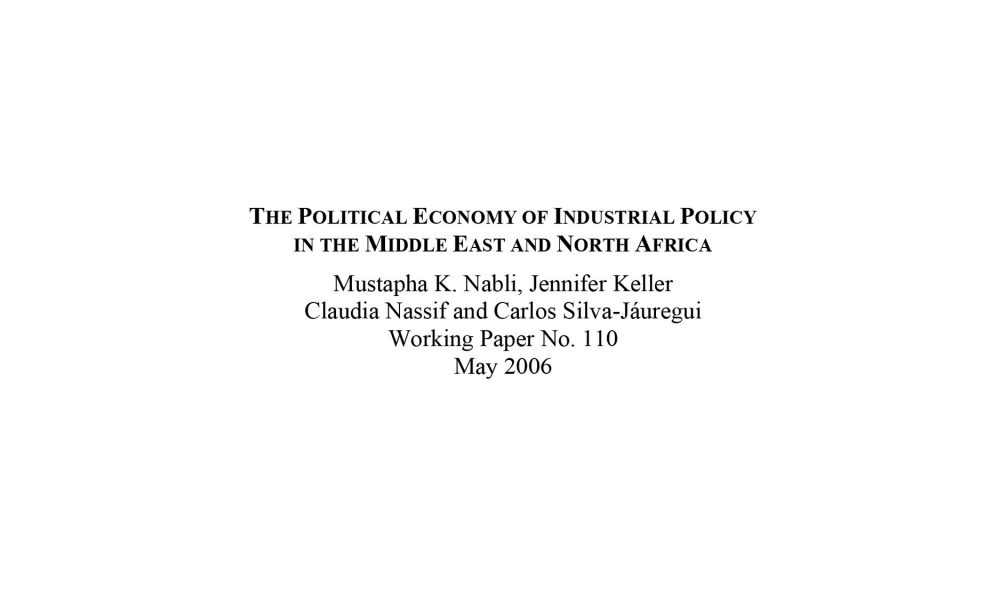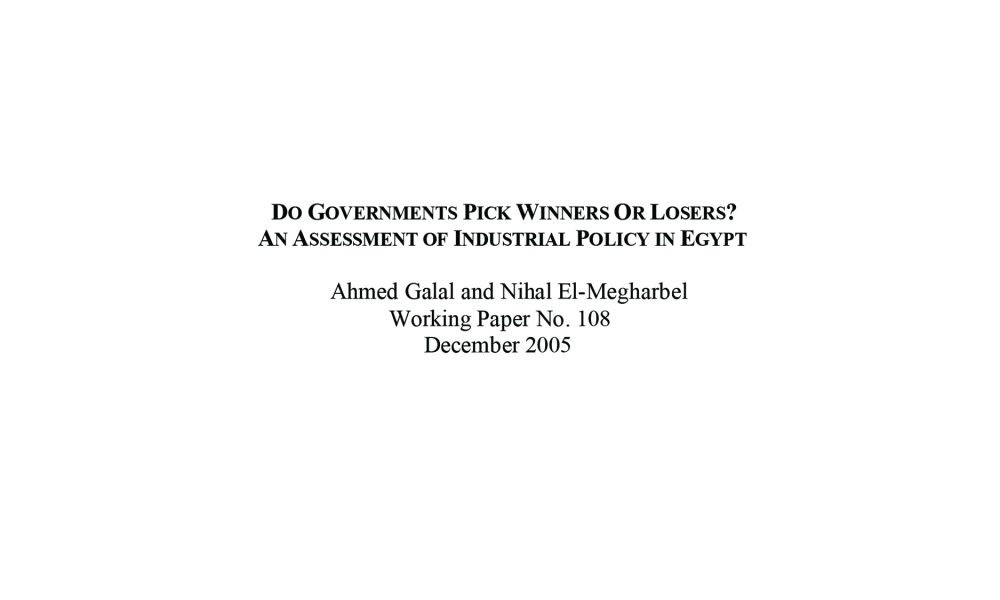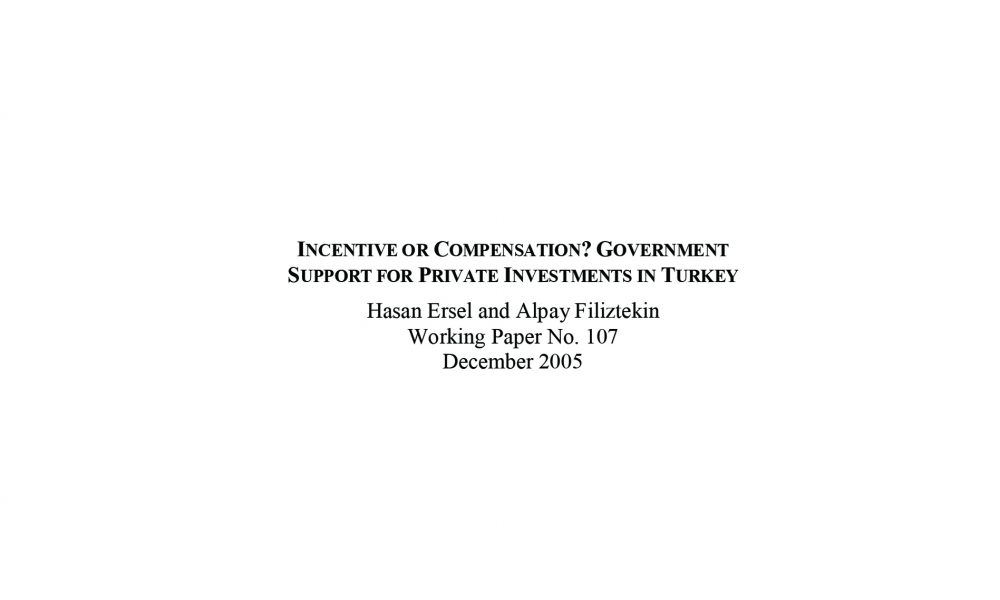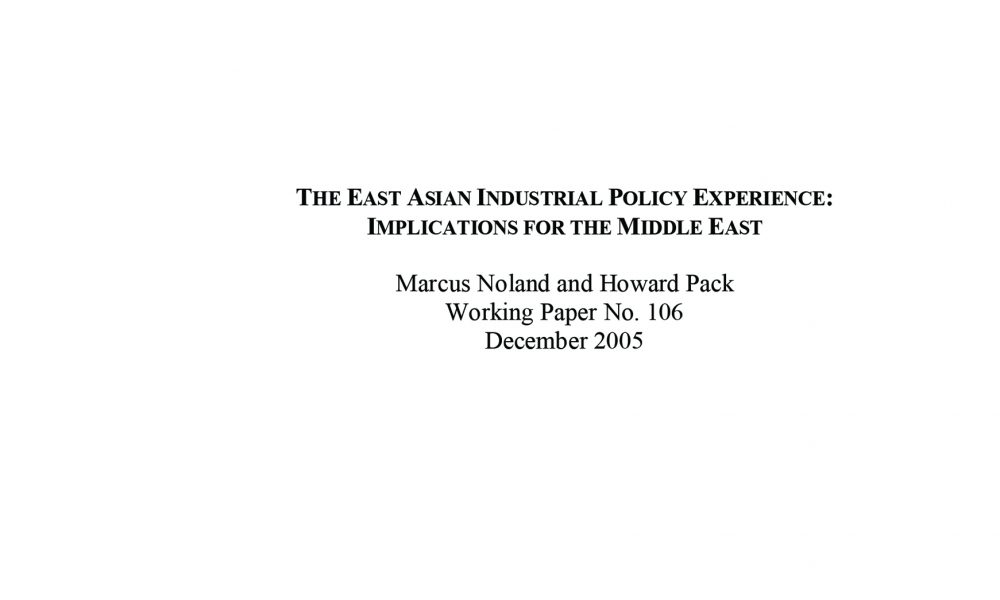Abstract:The purpose of this paper is to explain observed growth over the period 1990/91-2004/05 and to determine whether it has been associated with improved distribution leading to a significant reduction in poverty; or whether growth has been combined with deteriorating income distribution, dampening or even reversing the growth effect on poverty. The analysis proceeds along […]
Abstract:This study evaluates the early impact of the phase-out of the Multi-Fiber Agreement (MFA) on the textile and clothing sectors (T&C) in Egypt, Jordan, Morocco and Tunisia (MENA-4), with a focus on Egypt. Based on the assessment, the paper offers a number of recommendations to maximize the benefits from liberalization of international trade in T&C. […]
Abstract:This paper provides an ex-post assessment of the impact of Egypt’s qualifying industrial zones (QIZ) protocol on the textile and clothing industry in Egypt, and offers recommendations to maximize benefits to the sector. Drawing on the results of a survey conducted for the purpose of this study and interviews with QIZ companies, the paper finds […]
Abstract:This paper investigates the proliferation of parallel structures—also known as project implementation units (PIUs) and technical offices—within the Egyptian public administration system. To determine whether these structures are a viable tool for the implementation of reform, the paper examines international experience, analyses the literature, and assesses the results of a brief survey of staff working […]
Abstract:This study aims to investigate the extent of credit decline to the private sector in Egypt and whether it is due to supply factors (credit crunch), demand factors (credit slowdown), or other factors (e.g., crowding out). For that purpose, a detailed survey was conducted of 19 state- owned and private banks and 351 firms from […]
Abstract:The claim that industrial policy has become a thing of the past is largely exaggerated. Industrial policies continue to be used throughout the world, but with new modalities and focus that reflect the reality of the new global economic architecture, rapid technological change, and acknowledgement of the costly mistakes made in the past with traditional […]
Abstract: This study evaluates the merits of deregulating the airline industry in Egypt, especially from the perspective of enhancing the contribution of tourism to the Egyptian economy. It does so by tracing global developments in the airline industry, assessing the liberalization effort in Egypt to date, and outlining options for the future. On the latter […]
Abstract: This paper assesses the merits of selective intervention (or industrial policy) in the Egyptian manufacturing sector over the period 1980-2000 to determine whether this policy contributed to increased diversification and improved performance of difference industries. The paper finds no positive association between the preferential incentives accorded to different industries and their performance, and attributes […]
Abstract:This paper examines the effectiveness of government support to private investment in Turkey during the period 1980-2000. It does so by first assessing quantitatively the effects of investment incentives on total factor productivity, employment and investment in the manufacturing sector; and second, by conducting a survey of the views of businessmen who received these incentives […]
Abstract: Japan, South Korea, and Taiwan are regarded as primary examples of countries that have derived great benefits from increasing integration with the international economy, without surrendering national autonomy in the economic or cultural spheres, by pursuing decidedly non-neutral policies with respect to the promotion of specific sectors and activities. This paper addresses a series […]

